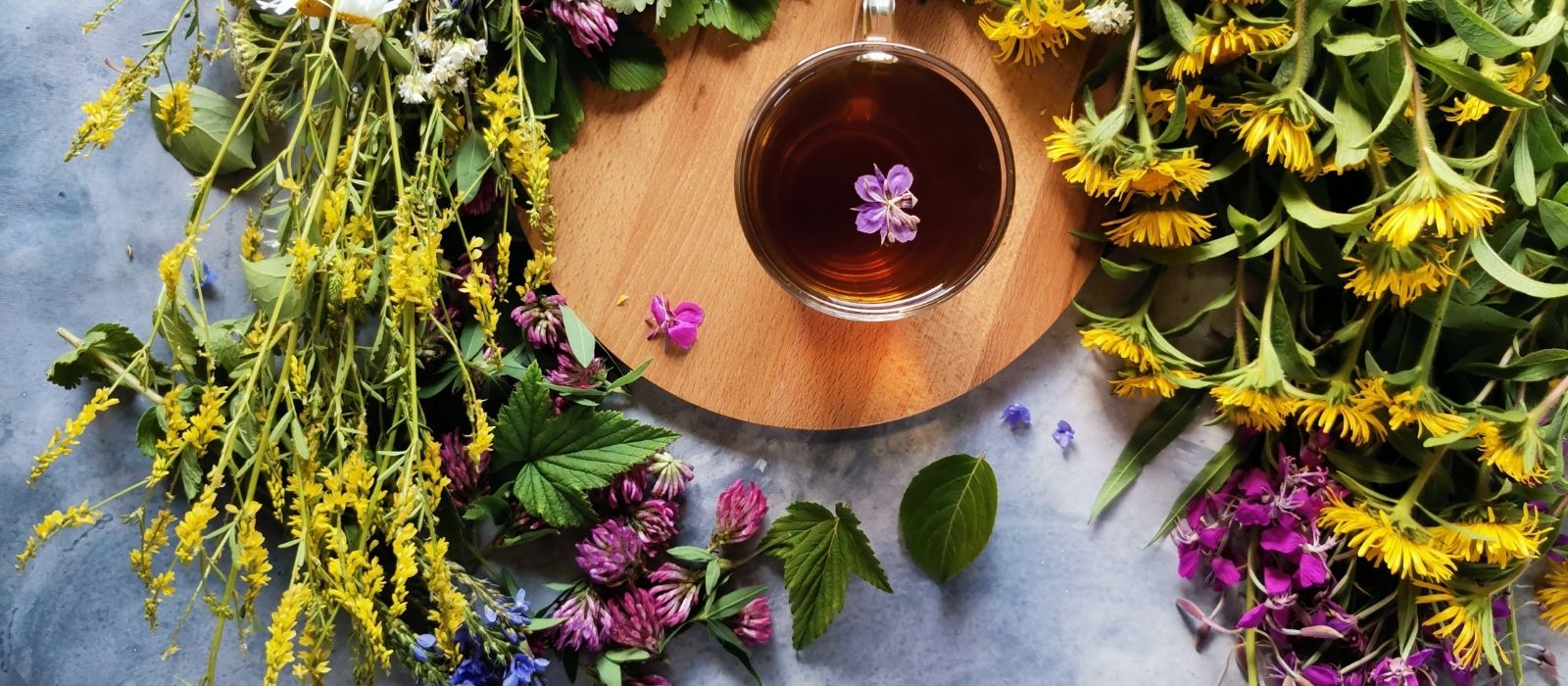
Why head to the supermarket for your next cup of tea when you can explore the healing and aromatic benefits of plants from your garden? Your garden can be a vibrant tea-making hub, offering herbs, flowers, and roots to create delicious and beneficial brews. The key is knowing which plants to harvest and how to prepare them for a soothing cup of homemade tea.
How to Make Tea from Your Garden
Using Fresh Ingredients
- Start with 5–6 leaves, seeds, or flowers per tablespoon. Rinse them well and place them in a teapot or cup.
- Pour boiling water over the fresh cuttings. Let it steep for 5–10 minutes until the water darkens and the tea takes on the herb's flavour.
- Remove the herbs and enjoy! You can sweeten your tea with honey, sugar, or a substitute to suit your taste.
Drying Your Tea Ingredients
- Drying methods include using an oven, microwave, or dehydrator or simply hanging them in a dry, dark space.
- Dried herbs are more potent than fresh, so reduce the quantity when using dried leaves. Generally, one teaspoon of dried herbs equals one tablespoon of fresh herbs.
- Steep dried herbs for 5–10 minutes for the best flavour.
Herbs and Plants to Try in Your Tea
- Lemon Balm – Calms anxiety, aids sleep and helps with stomach spasms.
- Lavender – A sedative that soothes nerves, ideal for stress and anxiety.
- Lemon Verbena – Relieves stomach cramps and stress.
- Chamomile – Helps with sleep and indigestion, making it a great bedtime tea.
- Raspberry Leaf – Supports menstrual health, offers antioxidants, and promotes oral health.
- Pineapple Sage – Eases heartburn and aids digestion.
- Calendula – Known for its anti-inflammatory properties and healing effects, it also protects vision.
- Rosemary – Supports gut health, improves brain function, and helps relieve inflammation.
- Rose – Relieves congestion, anxiety, and stress.
- Jasmine – Boosts immunity, offers antibacterial benefits, and reduces stress.
Tip: Experiment with Blends
Try blending different herbs and flowers to create unique flavours for a fun twist. For example, a soothing combination of lavender, lemon balm, and chamomile can help ease stress and improve sleep.
A Note on Dosage
While plant-based teas offer many health benefits, they should be consumed in moderation. Start with a mild brew of one plant variety to assess how your body responds. Always consult with a healthcare professional if you have specific health concerns or are pregnant or breastfeeding.
Your garden can provide a rich source of flavourful, healing teas that offer relaxation and refreshment. Enjoy foraging and experimenting with different plants to discover your ideal blend.







